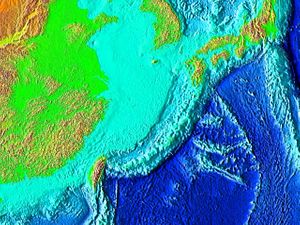It’s now been a year since China unilaterally declared an air defense identification zone (ADIZ) over a large swathe of the East China Sea. Beijing’s decision to do so came at a time of rising tensions between China and Japan over the disputed Senkaku/Diaoyu Islands. While that dispute persists today, tensions were significantly higher a year ago, with the potential for escalation high on both sides. At the time, The Diplomat hosted a wide range of perspectives on why Beijing chose to act as it did and the ramifications the ADIZ decision would carry going forward for the security of the Asia-Pacific region, China-Japan relations, and more. A year later, most of the questions raised then still endure. For example, will Beijing follow up on the mixed signals it’s been sending about a potential ADIZ over the South China Sea? Could Beijing’s enforcement of its ADIZ draw international legal action? Finally, will Beijing’s justification of the ADIZ evolve with time? I’ll mostly focus on the first question here.
We’ve seen mixed signals come out of China regarding the possibility of a South China ADIZ. For example, while a senior PLA official called for China to establish an ADIZ over the South China Sea, noting that it was “necessary for China’s long-term national interest,” these calls had been contradicted by official Chinese foreign ministry statements noting that there were no plans to install an ADIZ over the South China Sea. The geography of the South China Sea and China’s capacious territorial claim to almost the entirety of the region, down to the Borneo coastline, make the decision to declare an ADIZ there more complicated. Specifically, as I’ve discussed here before, the nature of China’s dashed line claim leaves some interesting and strategically advantageous ambiguities that would be threatened with the declaration of a de jure ADIZ.
Currently, Beijing’s claim delineates the maximum extent of Chinese control over the region. By declaring an ADIZ, Beijing would have to worry about the issue of enforcement. While the PLAN is the by far the strongest regional navy in terms of both quality and quantity of its assets, both it and its sibling service, the PLAAF, would likely find the task of enforcing an ADIZ over the entirety of the South China Sea an unmanageable task given current realities. Additionally, when China declared its East China Sea ADIZ, countries like Japan and the United States went further than ignoring the declaration: they actively defied Beijing’s declaration, challenging China to take the step of enforcement. Japanese civilian flights continued through the region, and the United States flew B-52 bombers through the region. If similar opposition were to emerge from the Philippines, Vietnam, and other claimants in the South China Sea, the ADIZ would only expose China’s inability to effectively administer its claimed territory. The sort of legal advantage that Beijing sought to gain with the East China Sea ADIZ is considerably more challenging to attain in the context of the South China Sea.
At this point, given ASEAN’s inability to come together to agree on a Code of Conduct for the South China Sea, declaring an ADIZ would be strategically imprudent for Beijing. In the East China Sea case, the ADIZ declaration came at a time of escalating tensions between Japan and China and bore few costs for Beijing. Given its current position in the South China Sea, there is no need for China to wage lawfare against claimants with an ADIZ. The impetus to impose an ADIZ will rise the more progress other South China Sea claimants make on either resolving disputes between themselves or putting forth a united front against China.
While the prospect of a South China Sea ADIZ will remain on the horizon, what is more important is for Beijing to make important clarifications about the justification of its East China Sea ADIZ which currently leaves numerous legal ambiguities. As Roncevert Almond notes in The Diplomat this week, the U.S.-China Economic and Security Review Commission highlighted this need in its report to the U.S. Congress. Having been condemned by the U.S., the E.U., Japan, South Korea, Australia, and even ASEAN to an extent, China’s ADIZ won’t be forgotten anytime soon. Going forward, China will find itself having to continue to address the ADIZ issue in its bilateral diplomacy with other major powers with interests in the East China Sea, including the United States.

































